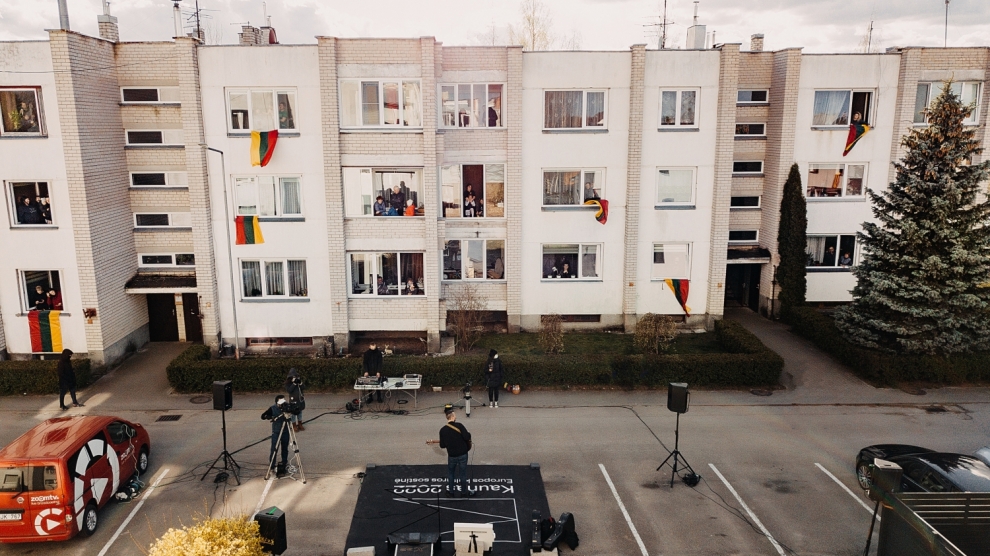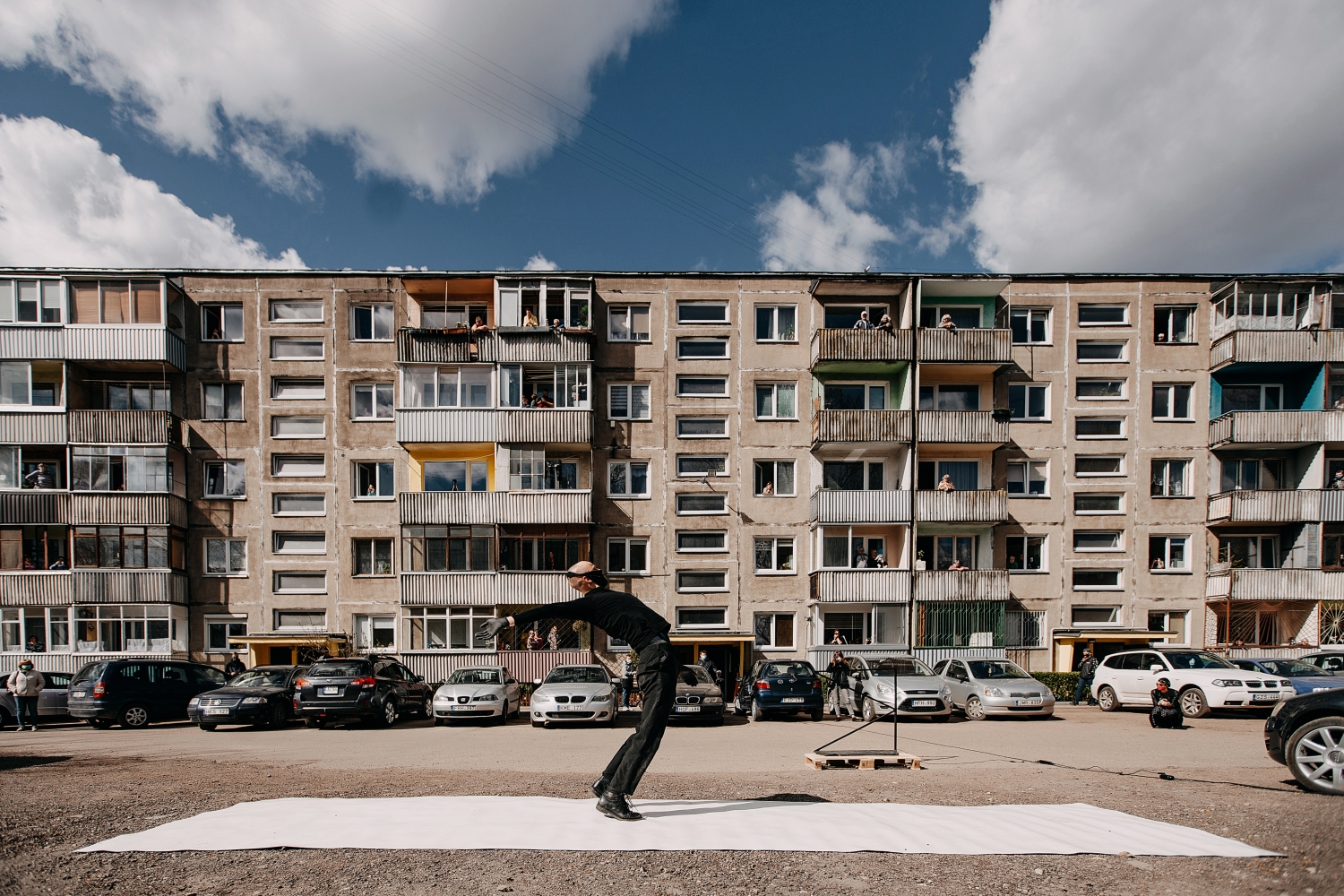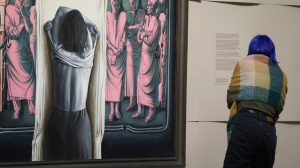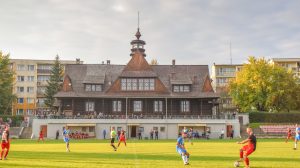There is no exciting way to start this story. Let’s just face the quarantine truth. Millions of people like me around the world are bored to their core. Yes, my shelves are full of books to read, my Netflix offers hundreds of movies to watch, my calendar is brimming with unfinished tasks to complete. There are workouts, long walks (having a dog is such a perk these days), and calls to relatives or friends. You can volunteer your own time or thank those working on the front lines who are stopping the pandemic and keeping everyday life going.
The Italians, the Spanish, and even the British are doing a great job – you have no doubt seen the videos of people singing and dancing on balconies, apartment blocks clapping loudly, car horns honking. Lithuanians have tried, too, but my neighbourhood at least didn’t muster more than three people clapping at the same time. It’s not that we don’t pride ourselves as a singing nation – after all, the world knows us for taking down the Soviet Union 30 years ago united in song. But today we’re united in quarantine, fear, and perhaps even laziness.
However, not everyone succumbs to this laziness. Kaunas, my city, will have the privilege of becoming the European Capital of Culture in 2022. We are now in our third year of preparation. The Kaunas 2022 team has already launched several exciting projects that focus on our city’s modernist architectural heritage, the revival of multicultural history, the strengthening of the existing cultural sector, the stimulation of diverse communities of the city’s and the region’s neighbourhoods and the development of sustainable design available for all, amongst other initiatives. A lot is to come, including major events and activities in 2022, and a much more vibrant and diverse cultural life afterwards.
The pandemic and the quarantine have impacted on the activities of Kaunas 2022. Many small gatherings and workshops have been postponed or transferred online; travels, both internal and international, have stopped. Part of the team, just like many of us, took time off, but some are still working hard. Quarantine in Lithuania started just a few days before the International Day of Happiness on March 20, which is one of the key events launched by Kaunas 2022.
This year was the third year in a row the city was supposed to rejoice in celebration. By ‘the city’ I mean cultural institutions, private businesses, and the thousands of residents in various locations around the town. Instead, we ordered take-aways and watched movies.
This is where Kaunas 2022 showed initiative straight away – they came up with a short video recommendation series. Artists and representatives of festivals and cultural institutions shared their tips and tricks to fight boredom and enhance one’s cultural life while staying at home. That was very nice, indeed. I loved most of the videos. So many exciting things happening online. But it is… not enough!
–
Being online all the time is boring. I even started hating it. My screen time dropped by a whopping 20 per cent last week. I am now spending more time on the balcony instead, reading a book or watching trees blossom. Or attending a concert, if I’m lucky. Even though, or indeed because, our balcony cheering culture does not stack up against that of Italy or Spain, Kaunas 2022 decided to spice things up and organised concerts and performances in the courtyards of the city’s apartment blocks.
The seed was planted a few years ago – every summer Cirkuliacija, an international contemporary circus festival held in Kaunas, presents a site-specific performance for balconies by local and foreign artists. But that only happens in one courtyard a year. Kaunas 2022 aims higher and has already visited some five courtyards, with many more to go until the lockdown is lifted. As for now, artists and performers have visited courtyards located in the neighborhoods of Kaunas district, which means that, residing in quite a central location, I will have to wait a bit longer for someone to sing a serenade under my balcony. But I’m not complaining.
The truth is, the locations that have already been visited and will be visited in the near future by the Culture to the Courtyards project tend to miss out on high culture. Not at all in terms of geographical proximity – after all, each neighbourhood or small town has an official cultural centre, a library, or some other institution where residents can gather and experience or create culture.
But quality music acts, whether classical or pop, as well as contemporary dance performances and exhibitions, are rare guests in these courtyards, even though they are no more than 10 or 15 kilometres away from central Kaunas.
The erasure of social distance is, I believe, what makes the project kaunastic (an alternative word for ‘fantastic’ we use in Kaunas) and accurately represents the values that the team of the contemporary cultural capital-to-be is trying to emphasise and integrate into the everyday lives of everyday citizens.
If you think about it, the term ‘social distancing’, so widely used in the time of the pandemic, is illogical. While we must avoid physical contact and keep physical distance from one another, by no means should we shy away from the emotional touch, either online or offline, face-to-face (two metres apart from each other, mind you!) or, indeed, while standing on the balcony listening to a courtyard singer’s recital. The feeling is mutual for audience and performer alike – a participant once told me that he thought he would end up performing to concrete walls. But he played to dozens of smiling faces instead.
His new fans, perhaps.
—
All photos by and © Martynas Plepys, Plepys Photography
—
Unlike many news and information platforms, Emerging Europe is free to read, and always will be. There is no paywall here. We are independent, not affiliated with nor representing any political party or business organisation. We want the very best for emerging Europe, nothing more, nothing less. Your support will help us continue to spread the word about this amazing region.
You can contribute here. Thank you.








Add Comment